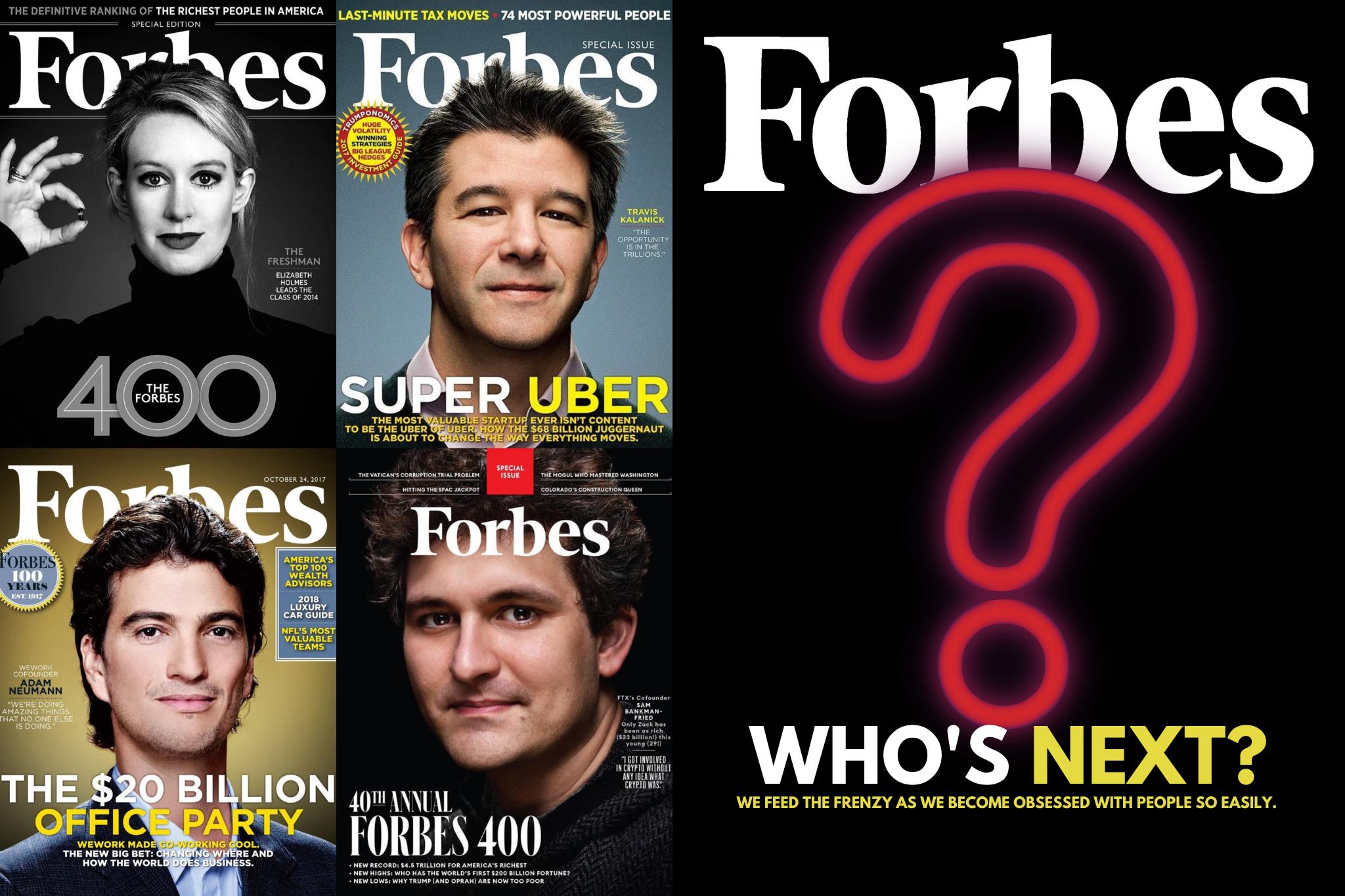What’s the similarity between Adam Neumann, Sam Bankman-Fried, Elizabeth Holmes, and Travis Kalanick? They have all been on the cover page of several influential magazines hailed as geniuses in their respective fields, and they have all been berated as fallen idols engrossed in deception and other corrupt practices by the very same people who praised them in the first place. We have all come to hate Elon Musk for messing up our Twitter feed and causing shockwaves in crypto prices at his whim, and yet, it was a league of journalists who kept reporting on every breath he took and every move he made. New Yorkers are afraid that gun crime is completely out of control in their city, while Hungarians are still tormented by sleepless nights worrying about an infinite influx of refugees.
What connects all these cases is that it is journalism, and the media in general, that play a crucial role in shaping the image we have of these critical realities, in influencing the way we relate to the rest of society and all the stories that are affecting the collective. Individuals can be deceptive, they can create businesses which are based on scams and false promises. Rich people can be driven crazy by the adoration they receive, and the current state of society can become more dangerous day after day as the looming, and realizing, threat of a recession is pushing more and more people into poverty. But the way society interprets what is happening is heavily influenced by how the media depicts each story. Journalists are not passive bystanders merely reporting on cases and providing informative coverage. Through shaping our perception of the events that are taking place, they actually affect the way those events are unfolding. And this makes them, at least partially, complicit in all the public fallout stories that our chaotic world is so often experiencing. This is a textbook example of hypocrisy, of pointing fingers and scapegoating instead of looking for solutions collectively.
But wait, wait, wait. Let’s not be too hasty here. It’s always cool to uncover another person or entity we can blame, but if we stopped right here, complacent that we have finally admitted the truth that journalists are being rather crappy lately in inflating everything that is bad out there to stay relevant and newsworthy, then we would make the very same mistake we are accusing journalists to have committed. Passing responsibility on someone else instead of owning up to our own mistakes. It’s like when the Democrats started spreading rumors during this year’s midterm elections in the United States that the election-denying Republicans were cheating. Come on guys, seriously? Let’s be better than this.
It’s the typical ‘chicken and egg situation’ we are facing here. People do bad things out there and journalists are reporting on their deeds. On top of money disappearing, the real effect is mostly disillusionment and growing negativity taking hold of society. But it was the over-excited news coverage in the first place that fed the frenzy, that pushed people into going crazy over what was happening. Yes, journalists bend the knee quite easily as they seek breaking news to increase their viewership. So, are they really the only ones in addition to the prime suspects to blame here? Or what about us so eager to fall for the clickbait? Isn’t it our own hunger for chaotic stories that incentivizes the media to mainly report on the negatives because no one is really interested in something positive?
From Bad Reader Habits to Adjusting Journalists Reinforcing These Bad Habits
You know, I’m torn. I’m torn because, on the one hand, I firmly believe in a society where members take it upon themselves to take initiative, to go out there and red flag those who endanger the peaceful existence of our beloved community. But this is what we call ‘cancel-culture’ in practice. In the digital age, it is no longer journalists only who provide society with juicy information pieces, but it’s the whole gang of users liking, commenting, and unfortunately, impulsively adoring and trashing. Self-regulation has been unleashed with the impetuous mob hastily jumping on the bandwagon each time someone seemingly fabulous or notorious has been picked to be worshipped or roasted.
First, there’s always the frenzy, FOMO stirring up the calmness of the sea. Not critical thinking, people making smart choices and thinking it through what they actually see, but journalists and users alike nosediving in the mirage that something great is happening. A new wunderkind is hailed, someone pushing action on climate change or enabling crypto access for the masses. Our montaged gang with their admiring Forbes coverage were lucky once to enjoy this initial loving sentiment in society. But while being critically evaluated already by everyone who is sane, Andrew Tate is currently enjoying the very same fame in certain other circles who we don’t even want to name. We are like Boyle going “Full Boyle” in the Brooklyn 99 tv series, confessing our never-fading love on the very first date. From the heights we so easily reach, falling is really the only subsequent possibility.
And then, the sentiment obviously changes. We have grown tired of all the trolling tweets, or a smudgy balance sheet has been published. The tide is withdrawing, and the haters are excited. Well, tbh, by this time, we all belong to this group, citing early signs that no one could have missed, except the fact that we all did. But it doesn’t matter who we adored originally, because now we are all marching together to bring down the latest con artist who made a fool of society. There’s hatred out there and the desire to make someone disappear, and society’s descent from ascent knows no limits.
What’s Driving This Roller Coaster of Feelings?
The past few weeks have been rather interesting, at least, that’s how I have perceived it. So many occasions of society ‘collectively feeling’ something. On this website, I didn’t even want to publish articles on reality-related topics. The plan was to disappear in my abstract ideas about society, to introduce to the world my own imagined reality. And then, all these things – with Elon Musk running Twitter into the ground, American midterm results coming as no surprise, Qatar’s human rights record bashed as the country hosts the World Cup, and many of crypto’s biggest names going bust – came about, and I, like many others, got stuck.
There’s nothing wrong with people following what is happening on the outside. However, in my opinion, we should put a greater emphasis on that still being just the outside. Readers eager for breaking news, users hungry for fierce conversations on social platforms, journalists engagingly reporting on what’s going on, and a few bad people ruling them all are all fueled by a world that wants to be involved. And that energy often goes southward, with angry users jumping on a hateful bandwagon or early excitement leading to people being disillusioned.
The world can be an amazing place without control. People coexisting peacefully without a central figure imposing one voice. This entails free speech protection without cancel culture, but a healthy news environment as well where people can independently tell their own stories about issues that might affect us all. However, this liberty to be successful requires a certain level of maturity from the people. Journalists shouldn’t solely be pursuing breaking news and clickbaity titles, politicians shouldn’t be striving on the anger of the people, and the people themselves should be more ready to go for something positive and overall good instead of getting over-excited about negative news.
Let’s Start Forming a Conclusion Here Before I Lose the Reader Base
All I’m saying is that we should be just a tiny bit more careful about the way we communicate because under today’s terms we are slowly fueling revolutions on totally random & trivial cases. And maybe, for a while, things remain all good and the ever-darkening tone we use in public discussions has no real toll, however, I think we can all agree that that’s probably not true. Once healthy and peaceful societies can distort to aggression, people can grow tired of pessimism, and over the last bubble that bursts we might have no control.
So, as we are all involved in what is going on, it’s for all of us to decide how we continue. Right now, it’s often just millions of people shouting over each other leading to pointless conversations drenched in chaos. Readers, journalists, politicians all alike are putting fuel on this raging fire. Some smart academics just call it “post-truth”, while in politics itself it’s always the story of rising populism and an angry electorate growing increasingly willing to embrace violent methods. But at the core there’s something way simpler going on. Us, the people, staying on a path that we know is going wrong, but we don’t pick a new direction because for the moment staying seems to be the most capturing way of doing communication.
And how does this relate to some fallen idols previously smiling from Forbes? It’s people (journalists in this case) doing the short-term thinking of creating what can be sold, no matter the consequences that might follow. Once, it’s the story of a young genius becoming the latest billionaire based on sky-high valuations, the next time it’s another piece of seemingly fascinating news, let’s say about the most recent investment of Masatoshi Son. A bunch of stories and articles that were not necessarily thought through, which just sought the case that could spark sensation. A house of cards where sooner or later one piece will always fall, and while the cases viewed separately might be just stories of notorious misjudgments and fiascos, seen together they amount to something significantly more. Flawed communication that is actually irritating us all.
Yes, that has to be it – Irritation. We know that something is off, we are quite conscious that something weird and probably corrosive is going on in our public discourse. But each time a new story emerges and we get to give a reaction, we do the same thing we always do. Either, way too much excitement with no critical thoughts, or we snap and jump on the hateful bandwagon. Readers, journalists, politicians, and other public figures are all part of an infinite loop over which we seem to have lost control.
But no, we can’t repeat that excuse because it’s just not true. We do have control, we do get to move, and that’s why today we must change course. We can’t just seek breaking news and news should not be merely about sensation and clickbaity titles. Instead, the emphasis should be on something meaningful, information that we can truly benefit from. Determining where to draw the line is something I don’t yet know, so I guess that could be a nice first challenge we follow up on.
Long story short, it’s essential that we fix our communication, that we change the way election campaigns unfold, the way journalists report on the news, and the way we seek to get updated on what’s going on. This difference in style stands at the core of the Dragon’s Alliance’s mission.



